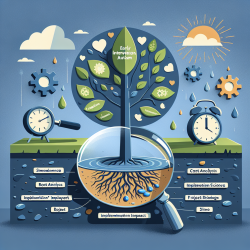In recent years, the issue of sports-related concussions has gained significant attention from both the media and the medical community. As practitioners, it is crucial to stay informed about the latest research and guidelines to effectively manage these injuries, particularly in youth athletes. A pivotal study titled "A Case for Mental and Physical Rest in Youth Sports Concussion: It’s Never too Late" sheds light on the importance of rest as a treatment strategy.
The Growing Concern of Youth Sports Concussions
Youth sports concussions have become a pressing public health concern. With emergency department visits for sports concussions doubling over a decade, it is evident that more needs to be done to protect young athletes. The Centers for Disease Control and Prevention (CDC) and various national organizations have established guidelines to address this issue. However, effective treatment remains a challenge.
The Importance of Cognitive and Physical Rest
The Zurich 2008 Consensus Statement on Concussion in Sport highlighted the necessity of cognitive and physical rest following a concussion. This recommendation was based on clinical experience and common sense rather than empirical evidence. Recent research by Moser et al. (2012) provides data supporting the efficacy of rest, whether applied immediately after the injury or later in the recovery process.
What Does Rest Entail?
- Time off from school or work
- No homework or mentally stimulating activities such as reading or using computers
- Avoidance of visually stimulating activities like video games and television
- No physical exertion or exercise
- Increased sleep and relaxation
This comprehensive rest approach aims to allow the brain to recover from the neurometabolic cascade triggered by a concussion.
A Case Study: The Impact of Delayed Rest
The study presents a compelling case of a 14-year-old athlete who experienced significant improvement after implementing cognitive and physical rest 13 months post-injury. Despite multiple concussions and prolonged symptoms, a strict regimen of rest led to remarkable recovery within weeks.
This case underscores the potential benefits of rest even when applied long after the initial injury. It also highlights the need for practitioners to educate patients and their families about the importance of rest in managing concussions.
Encouraging Further Research
While this study provides valuable insights, it also emphasizes the need for further research to develop evidence-based treatment protocols. Practitioners are encouraged to stay updated on emerging research and contribute to advancing our understanding of concussion management.
By advocating for comprehensive rest and supporting ongoing research, practitioners can play a pivotal role in improving outcomes for young athletes suffering from concussions.
To read the original research paper, please follow this link: A Case for Mental and Physical Rest in Youth Sports Concussion: It’s Never too Late.










